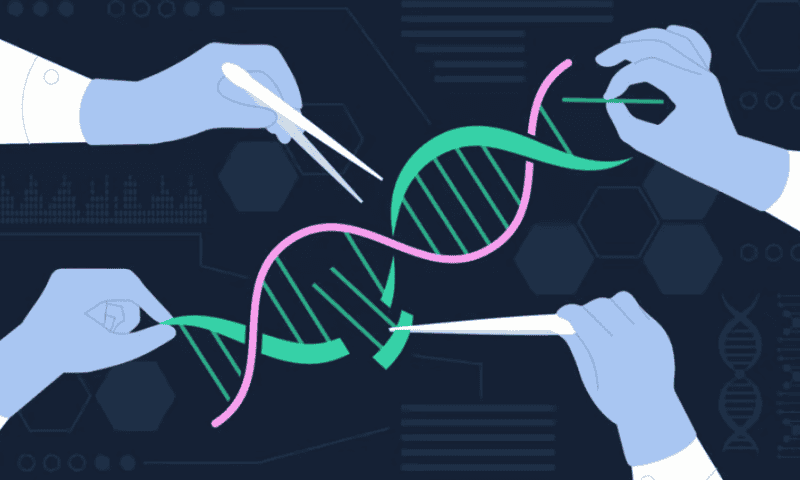Ginkgo Bioworks announced it has snapped up three molecular medicine startups, including companies working on gene-based diagnostics and artificial intelligence-generated compounds.
The spending spree comes alongside Ginkgo’s unveiling of a new technology network that encompasses a list of offerings from more than 25 of the company’s developer partners and previous acquisitions with the goal of providing its R&D customers with “more robust end-to-end solutions.”
First on Ginkgo’s shopping list was Proof Diagnostics, the Cambridge, Mass.-based CRISPR test developer co-founded by Feng Zhang of the Broad Institute of MIT and Harvard. Since the pandemic, Proof has been working on a “future-proof” COVID-19 screener with a rapid tabletop analyzer also capable of using the gene-editing tech to detect the flu, respiratory syncytial virus and other diseases.
Ginkgo said it was mainly attracted to the company for its intellectual property and libraries of RNA-programmable, non-Cas enzymes, which Proof calls OMEGAs (for obligate mobile element-guided activity).
The company described the emerging class of OMEGAs as a potential upgrade over the current tools used in genomic medicines, with characteristics that make them easier to deliver into cells. Ginkgo plans to use them to support its gene therapy services, offering another approach to gene editing.
“These enzymes are more compact and diverse than other classes of programmable nucleases—including CRISPR Cas—and are a powerful addition to the gene editing toolkit for therapeutics,” Proof’s co-founder and CEO, Sid Shenai, said in a release.
Up next is the AI platform developer Patch Biosciences, a New York-based outfit focused on computer-designed cargos for genetic medicines. Its machine-learning models and downstream assays will be absorbed into Ginkgo’s current offerings.
“Integrating Patch’s capabilities, libraries, and datasets is immediately valuable to our ongoing programs and augments the genetic medicine toolkit we have built for our customers,” Ginkgo CEO Jason Kelly said in a statement.
Finally, Ginkgo has also acquired the AI-powered drug discovery company Reverie Labs to accelerate its own work in developing biology-focused foundation models and small molecule design.
Ginkgo said four members of Cambridge, Mass.-based Reverie’s AI team will make the jump—including Chief Technology Officer Ankit Gupta, who will serve as Ginkgo’s head of AI/ML advancement.
“Our team at Reverie has made great strides using machine learning modeling to improve human well-being, and I am eager to marry our technology with Ginkgo’s repository of data, enabling Ginkgo to build some of the world’s best AI models to engineer biology and chemistry,” said Reverie’s co-founder and CEO, Jonah Kallenbach. “Ginkgo is a perfect home for the technology that Ankit, the Reverie team, and I have built over the last six years, and I am very excited to see the impact it will have in the short and long term.”
While the full cost of the three acquisitions was not disclosed, Ginkgo did detail the transfer of restricted stock units to members of Reverie Labs and Patch Biosciences—including $3,530,000 in total value to four Reverie employees and $4,292,000 divided among eight Patch employees.
Reverie’s recipients will follow Ginkgo’s standard compensation schema, with each grant vesting 25% on the one-year anniversary and the remainder in monthly installments over the next four years. Patch’s staff will follow that schedule or, “for certain employees,” vest 100% about nine months from the grant date.

